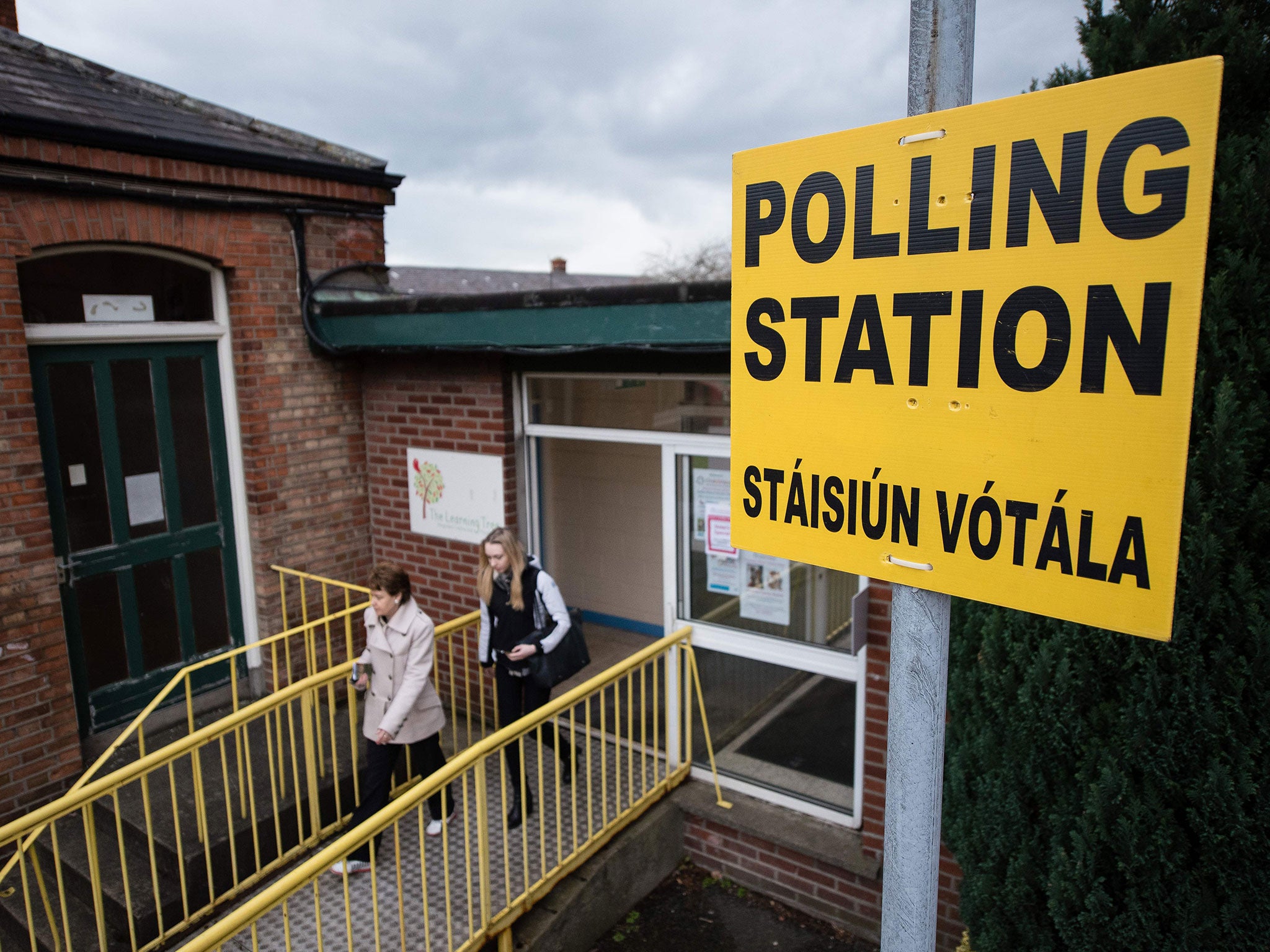How Ireland looks poised to hold a referendum on whether a woman's place is 'in the home'
Ireland is currently heading to the polls for a general election, fuelling speculation that the main parties will commit to holding a referendum on Article 41.2 during the new government

Your support helps us to tell the story
This election is still a dead heat, according to most polls. In a fight with such wafer-thin margins, we need reporters on the ground talking to the people Trump and Harris are courting. Your support allows us to keep sending journalists to the story.
The Independent is trusted by 27 million Americans from across the entire political spectrum every month. Unlike many other quality news outlets, we choose not to lock you out of our reporting and analysis with paywalls. But quality journalism must still be paid for.
Help us keep bring these critical stories to light. Your support makes all the difference.
The people of Ireland are casting their votes today in a general election to choose representatives for the lower parliamentary chamber Dáil Éireann. Polls indicate a hung Dáil, with Fianna Fáil and Fine Gael expected to be the parties most likely to form a coalition.
Yet, regardless of the parties in power, one political outcome is increasingly likely; Ireland looks set to hold a referendum on whether a woman’s place is in the home.
Under Article 41.2 of the Irish constitution, Bunreacht na hÉireann, the country officially states that a woman’s natural place and duties lie “within the home”. It says: “The State recognises that by her life within the home, woman gives to the State a support without which the common good cannot be achieved.”
It continues: “The State shall therefore, endeavour to ensure that mothers shall not be obliged by economic necessity to engage in labour to the neglect of their duties in the home.”
The clause was initially entered in the early twentieth century with a view to acknowledging the many caring responsibilities which were undertaken primarily by women and to ensure that women who wished to look after their children were entitled to maternity leave and other benefits. However, the Article has come under increased criticism that it is sexist and outdated.
The country’s three largest parties have all pledged to change the issue if elected today. Fine Gael and Labour’s 2016 election manifestos both contain commitments to amending the Article. Fianna Fáil’s leader Micheál Martin has spoken publicly before about his support for an amendment to the Article. Most parties support retaining a reference to the importance of care givers but using gender neutral language and widening the terms to include care giving beyond home environments.
Due to the nature of Ireland’s written constitution, it can only be amended via a national referendum. The most recent such events occurred last May when the country voted on marriage equality and whether to reduce the minimum age to run for Presidency from 35 to 21.
Last year, the UN was critical of Article 41.2 and urged the country to secure a referendum on the matter, arguing that its presence contributes to “pervasive gender inequality” in Ireland. The UN also criticised the country’s ongoing abortion ban and called for a separate referendum on whether to repeal the Eighth Amendment in order to relax the current total ban on terminations.
Voting continues in the country tonight until 10pm, after which coalition negotiations are expected to take place this weekend between leading parties. Depending on which parties enter coalition and the extent to which they follow through on their promises, 2016 looks like it will be the year that Ireland commits to a referendum on whether a woman’s natural duties are in the home.
Subscribe to Independent Premium to bookmark this article
Want to bookmark your favourite articles and stories to read or reference later? Start your Independent Premium subscription today.
Join our commenting forum
Join thought-provoking conversations, follow other Independent readers and see their replies
Comments